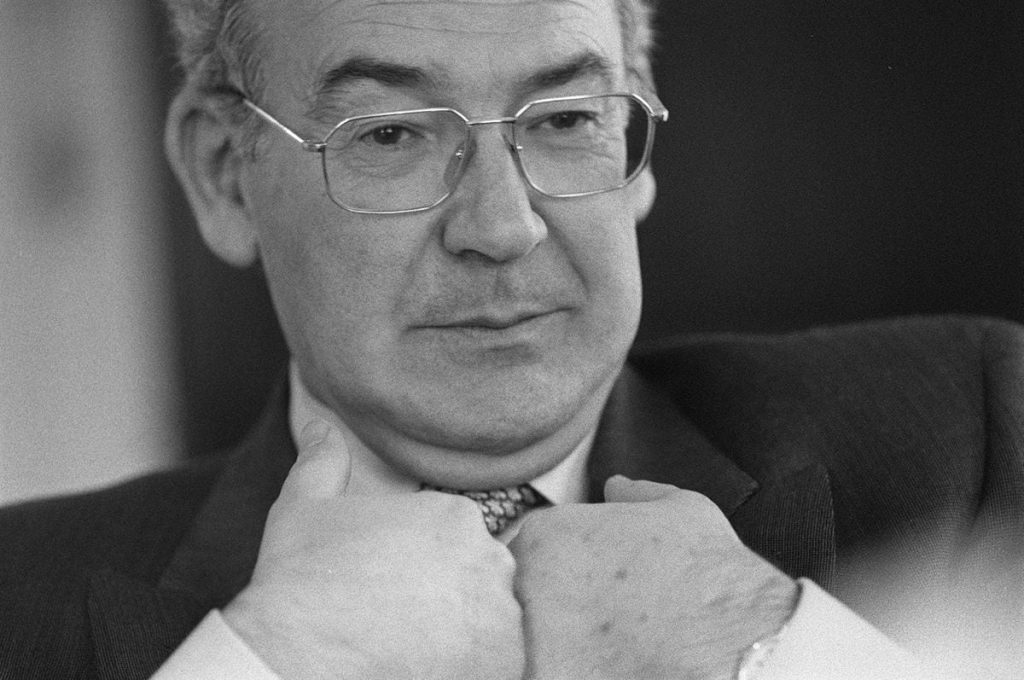José Antonio Ardanza, who served as the lehendakari of the Basque Government from 1985 to 1998, passed away on Monday. He will be remembered for leading the first coalition government in the Basque Country, formed by his party, the PNV, and the PSE-PSOE, and for achieving the first major agreement of all democratic parties in the Basque Country against ETA terrorism in 1988: the Ajuria Enea Pact, which became a political guide and a reference point in the final stages of terrorism. Ardanza governed during a very difficult period, marked by terrorism and the crisis within the PNV, and he is now considered a symbol of democratic and dialogue-based nationalism. The current lehendakari, Iñigo Urkullu, has been a worthy successor to Ardanza after the turbulent presidency of Juan José Ibarretxe.
Born in Elorrio, Bizkaia, in 1941 into a nationalist family, Ardanza joined the PNV at a young age. His professional background and entry into politics followed the typical PNV profile. He was trained in the Mondragon Cooperative group and served as mayor of Arrasate before becoming the lehendakari of the Basque Government in 1985, succeeding Carlos Garaikoetxea during a crisis within the PNV. After the 1986 Basque elections, marked by the PNV split led by Garaikoetxea’s followers who founded a new party, Eusko Alkartasuna, Ardanza formed a coalition government with the PSE-PSOE. Despite winning more votes, the socialists accepted Ardanza as lehendakari following the election.
Ardanza was chosen by the PNV, under Xabier Arzalluz’s leadership, to lead during a tumultuous period. His simple, friendly, and pragmatic personality was ideal for a time when the PNV needed to collaborate within the Basque community to overcome the crisis caused by terrorism, political conflicts, and economic challenges, as well as to improve relations with the government of Felipe González. The relationship between the Basque and Spanish governments had been strained due to differing interpretations of the Gernika Statute by the lehendakari at that time. The first coalition government experience between a nationalist and non-nationalist party, PNV and PSE-PSOE, led by Ardanza and Ramón Jáuregui respectively, was successful, thanks to their collaborative approach.
During his time in office, Ardanza emphasized the contrast between the socio-political turmoil in the Basque Country, with the backdrop of ETA terrorism, and the harmony among all democratic parties in the region. This harmony peaked the year after the coalition government was formed with the signing of the Ajuria Enea Pact in 1988. This agreement, the first of its kind among all democratic parties in the Basque Country, stated that ETA terrorism had no political legitimacy and promoted non-violent means of conflict resolution. Ardanza believed that the Pact was a political defeat for ETA, despite the terrorist group continuing their attacks, as it delegitimized their violence forever.
Ardanza’s role in weakening the terrorist threat through the Ajuria Enea Pact is often overlooked. In his memoirs, he acknowledged the significance of the agreement and the impact it had on the fight against terrorism. Two years ago, he spoke to EL PAÍS, despite battling cancer, to reflect on the importance of the pact. Ardanza was also instrumental in organizing the massive protest in Bilbao demanding the release of Miguel Ángel Blanco, a councilor who was kidnapped and killed by ETA. The Pact of Ajuria Enea and Ardanza’s historical role in combating terrorism have not been adequately recognized, but they remain crucial in the fight for peace and democracy in the Basque Country.


